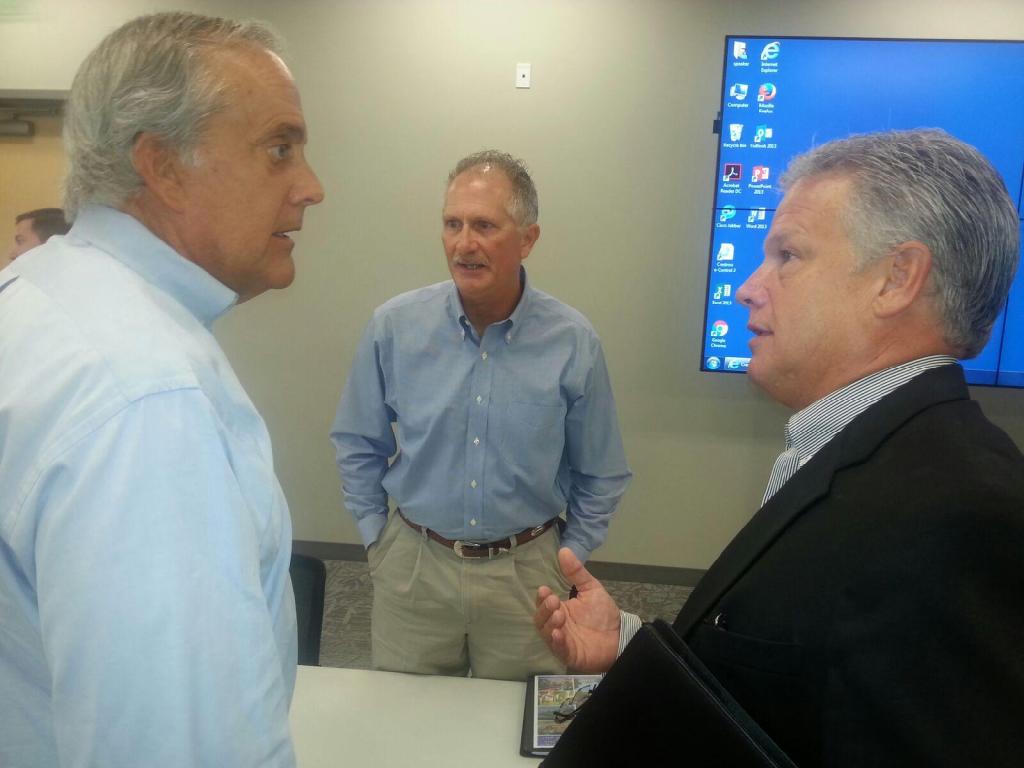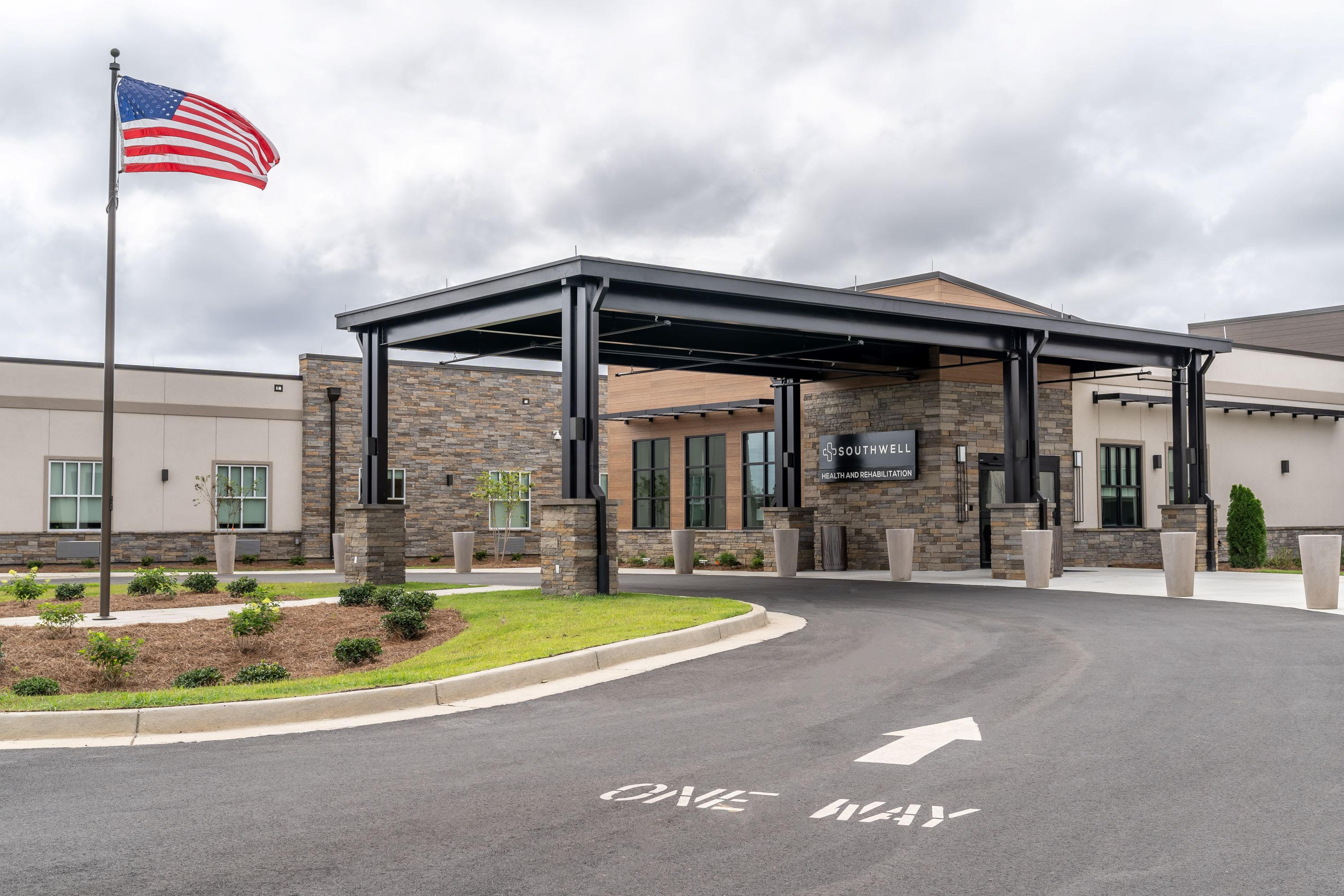ORMC CEO: City water crisis ‘embarrassing’ for hospital
Published 9:36 am Thursday, August 4, 2016

- ORMC interim CEO Steven Johnson (left), Milledgeville Mayor Gary Thrower (right) and City Councilman Steve Chambers talk after Wednesday’s town hall.
MILLEDGEVILLE, Ga. — The recent city water issues came at a critical financial time for Oconee Regional Medical Center, resulting in local hospital officials having to revert to their emergency preparedness plan to work through a difficult situation.
“I’m not going to stand here and tell you that the hospital is the most important business in this county, but it’s pretty important,” Steven Johnson, interim chief executive officer of ORMC, told city officials during a town hall meeting Wednesday. “I can tell you that it basically shut us down. It basically shut us down.”
Trending
Johnson told city officials that the situation was embarrassing.
“We are on calls every single week with bond counsel all over the country,” Johnson explained. “Most of you know we’ve got a transaction we’re trying to get done. We’ve fielded more questions about the water than we have about our financial statement the last couple of months.”
Johnson said he hopes there’s not another water problem, but that it can’t happen at the hospital again.
“We’ve diverted hundreds of patients since April,” Johnson said.
He was referring to an earlier water shortage and boil water advisory notice from city officials due to major water main breaks that led to the shutdown of the city’s water system. “God knows I hope there weren’t any lives lost in that diversion process.”
One day last week, a total of 17 surgeries were canceled at ORMC, he said.
Trending
“I’m not even going to talk about the economic impact,” Johnson said. “I can tell you that we had two really good months in April and July, but the fact that we had several days where we couldn’t have patients — those months were not so good. We’re on a thin margin.”
Johnson pointed out that everybody wants and needs water.
“But we are incredibly, incredibly dependent on water to the point that I think you need to take the hospital and put aside and say we need something special here,” Johnson said. “We need a well or whatever.”
Johnson said he was concerned about the economic impact, as well as the inconvenience placed on patients and their families and the local medical community.
“It was substantial,” Johnson said.
The hospital’s top executive also offered a little advice to city officials.
“I hope there’s a (city) plan,” he said. “When we look at the numbers, to me 208 miles, the number of water lines we have, if you look at the last two fiscal years, that was about $800,000, plus or minus that was spent on repairs. That’s less $2,000 a mile, and I realize we don’t need to replace a whole water system, but I’d be looking at that water system.”
Johnson said he had been in many cities during his career as a hospital administrator and that he had never before encountered anything like the recent issues.
“It’s saddening and it is embarrassing,” he said. “The confidence level in that facility hasn’t been real high anyway, and we’re trying to build that up, but now we’ve got to deal with water. We take it for granted. God bless you guys; you’ve got a tough job.”
He told city officials they must be ever mindful of the hospital.
From a communications standpoint, Johnson said some of the staff at the hospital feel like they are the last to know what’s going on.
“That’s an issue for us,” Johnson said.
Milledgeville Mayor Gary L. Thrower told Johnson immediately after he spoke that the moment he heard there was an issue last week that he reached out to Gil Gilliland, the hospital’s emergency preparedness director.
“I want you to know that it was such a top priority to me that that was the first place I went,” Thrower said.
Thrower said he told Gilliland that the hospital was “a high priority” business in Milledgeville.
“What we need to do is reexamine the plumbing diagram at the hospital,” Thrower said. “We think there’s a main not being accessed and feel like there could be something that’s not being done properly that we need to make some changes on. I spoke to Mr. (Barry) Jarrett, and honestly if a dedicated line to the hospital is what we need, we need to figure it out. So rest assured, you’re on top of the list.”
City Alderman Walter Reynolds told Johnson he couldn’t agree with him more.
“What we have here in April was an unfortunate occurrence, but the fact that almost 90 days lapsed between the first major break and this most recent major break, and there were little, if any efforts extended to try to keep this from happening again, as you said, is an embarrassment.”





